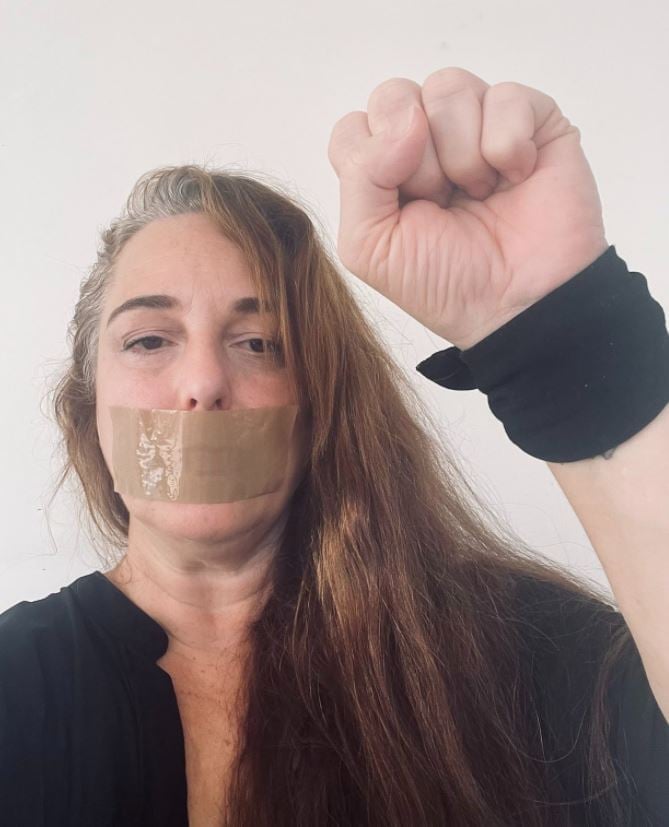
As Cubans continue to take to the streets this month to protest deteriorating living conditions, food shortages, and a lack of health care, the government has intensified its crackdown on dissenting voices—particularly those of prominent artists.
Yesterday, artist Tania Bruguera was allegedly taken from her home by state security officials and temporarily moved to the Cuban prison of Villa Marista.
The incident was detailed in a post on the artist’s Facebook page, run by her studio. According to the post, Bruguera was questioned for 11 hours about her relationship to fellow dissident artist Hamlet Lavastida, who has been imprisoned since late June, and eventually charged with various crimes related to her efforts in organizing against the government.
“To all this Tania responded with laughter given [the] falsity and nonsensical nature of all these accusations,” the post read, before noting that Bruguera would be subsequently put under house arrest by the state. The artist and her studio did not immediately respond to a request for comment.
Bruguera is not the only artist to face retaliation from the Cuban government in the ongoing wave of protests that have rocked the country for the past 10 days.
Luis Manuel Otero Alcántara, who has been a government target on many occasions, was arrested on July 11 while on his way to a protest at Havana Malecón esplanade, and has remained in detention since. Now, the state plans to transfer the 33-year-old artist to the Guanajay maximum security prison, according to Hyperallergic.
“I’m going to the Malecón, whatever the cost,” Otero Alcántara said in a video shared on his social media accounts prior to his arrest. “Enough of political prisoners, we want democracy.”
Otero Alcántara was previously arrested in April for participating in a demonstration against the Cuban government. After being detained, the artist went on a hunger strike, voluntarily giving up food and water in protest.
The incident drew worldwide attention. Amnesty International declared Otero Alcántara a “prisoner of conscience,” while a group of prominent artists, authors, and academics—including John Akomfrah, Edwidge Danticat, Junot Díaz, Julie Mehretu, and Carrie Mae Weems—issued a public letter to Cuban President Miguel Díaz-Canel calling for his freedom.
Anyelo Troya, a filmmaker who shot part of the music video for the popular protest song “Patria y Vida,” was also detained on July 11.
Díaz-Canel’s government has publicly blamed the U.S. and the embargo imposed on Cuba nearly 60 years ago for his country’s poor living conditions. “We Cubans know perfectly well that the U.S. government is the main responsible for the current situation in Cuba,” the president said in a statement tweeted out by the foreign ministry at the start of the protests. “#Cuba and its streets belong to the revolutionaries.”
The Cuban leader conveyed a similar message in an emergency broadcast across the country’s television stations, calling for “all the communists to take to the streets.” Diaz-Canal said that “destabilization” would be met with a “revolutionary response.”
In response to Díaz-Canel’s messages, Bruguera took to Facebook to say, “The government is playing a very dangerous game: trying to hide reality with propaganda. This is not going to work for them this time because NOBODY BELIEVES THEM NOW.”